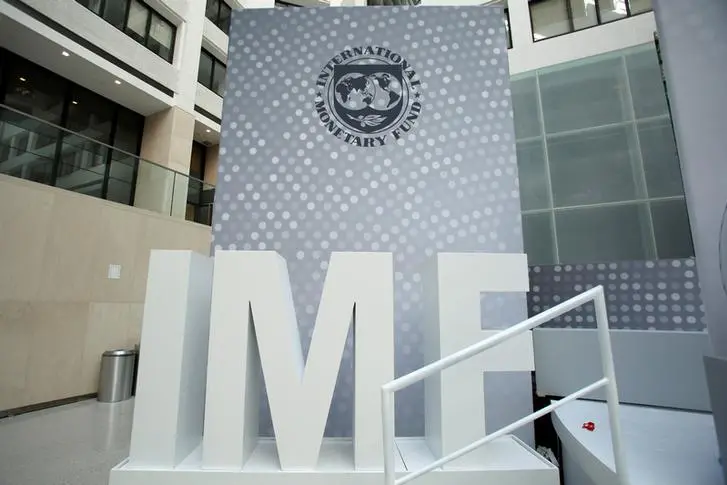PHOTO
NEW YORK – A group of 22 financially distressed countries, including Pakistan and Ukraine, has become the largest source of net revenue to the International Monetary Fund in recent years, with payments exceeding the Fund’s operating costs. The institution entrusted with providing the global public good of a well-functioning international financial system is, in effect, asking countries that are hardly able to pay their own bills to pick up the tab for the rest of the world.
This unseemly state of affairs is the result of the IMF’s surcharge policy, which levies additional fees on countries that exceed thresholds for the amount or length of their borrowing from the Fund. Imposing fines on countries like war-torn Ukraine or Pakistan, a lower-middle-income country where flooding two years ago submerged one-third of its territory, seems antithetical to the IMF’s mission: maintaining stability in the global financial system.
Surcharges neither ensure repayment nor protect IMF finances. Their main effect is to increase the burden of debt payments precisely when countries can least afford it, contravening the very rationale of the Fund, which was created to provide counter-cyclical financing.
Worse, surcharges have become much more onerous for indebted countries in recent years, and thus much harder to justify. In 2020, ten countries were paying these fees to the IMF; by 2023, with the COVID-19 shock, the Ukraine war, and rising interest rates, that number had risen to 22. And, importantly, the IMF’s basic rate increased from under 1% to close to 5%, raising the total lending rate for those paying surcharges to as much as 7.8%. No wonder these countries are finding it difficult to emerge from debt distress. It is time to end the surcharges.
Supporters of the surcharges argue that the additional fees discourage debtors from borrowing excessively from the IMF. But this moral-hazard argument ignores that loans require approval from the Fund’s Executive Board, which could reject frivolous requests, and it overlooks the fact that surcharges make countries more dependent on the IMF, not less.
The IMF is a preferred creditor, meaning that countries must repay the Fund before other creditors. Piling surcharges on top of what countries already owe requires them to put more scarce foreign currency toward repaying the IMF, limiting their ability to accumulate foreign-exchange reserves and regain access to international capital markets. Given this, many countries will have no option but to remain dependent on lending from the Fund to pay down their previous IMF loans.
Even beyond the particularities of the IMF’s preferred-creditor status, surcharges are inherently pro-cyclical. External factors such as rising interest rates, commodity price shocks, overvalued currencies, and extreme weather events often lead countries to borrow large sums from the Fund. Similarly, the ability to access international credit markets and repay the IMF “earlier” depends largely on global financial conditions, also an external factor. In an adverse international environment, increasing the burden on countries suffering debt crises is counterproductive to the goal of restoring stable growth trajectories.
Defenders of the surcharges also argue that they are needed to build up the IMF’s financial buffers. But leaving aside the obvious point that imposing the burden of creating these buffers on distressed countries is at odds with the Fund’s mission of protecting financial stability, this logic no longer holds, if it ever did.
This year, the IMF is set to reach its medium-term target for precautionary balances (the need for which has been greatly exaggerated, given that defaults by borrowers are extremely rare). Once that target has been met, surcharges would be taking money from heavily indebted middle-income countries to run the IMF – reducing the burden placed on rich countries. Asking these countries to finance the global public goods that the Fund provides is wrong, especially at a time when countries should be ramping up investment to meet the United Nations 2030 Sustainable Development Goals and their nationally determined contributions under the Paris climate agreement.
The IMF’s recently launched review of its surcharge policy provides an opportunity to fix a broken system. The Fund should listen to those calling for surcharge reform, including Barbadian Prime Minister Mia Amor Mottley, the G24 group of developing countries, and several legislators in the United States.
The simplest and most effective option would be to eliminate surcharges altogether. If this proves politically impossible, reforms could include capping total interest charges (the basic rate plus surcharges). The IMF would therefore impose fewer excessive burdens on indebted countries, especially in tight monetary conditions, and surcharges would decrease as the Fund’s basic interest rate rises.
Other technical adjustments would help reduce the burden of surcharges. For example, the IMF could raise the thresholds for imposing surcharges, and align them with the current “exceptional access” limits, beyond which a country’s situation is considered extraordinary enough to allow lending outside the standard IMF framework. Counting what a country pays for surcharges as principal payments on IMF loans would also make a big difference.
Even if surcharges used to make sense as a policy, they certainly don’t now. The IMF’s finances are robust; the finances of countries like Pakistan and Ukraine are not. Forcing countries to pay onerous surcharges only adds to their burden. That is no way to protect the world economy or fund the institution in charge of global financial stability.
Joseph E. Stiglitz, a former chief economist of the World Bank and former chair of the US President’s Council of Economic Advisers, is University Professor at Columbia University, a Nobel laureate in economics, and the author, most recently, of The Road to Freedom: Economics and the Good Society (W. W. Norton & Company, Allen Lane, 2024). Kevin P. Gallagher is Professor of Global Development Policy at Boston University and Director of the Boston University Global Development Policy Center. Martín Guzmán is a former minister of economy of Argentina. Marilou Uy, former director of the Secretariat of the Intergovernmental Group of Twenty-Four on International Monetary Affairs and Development (G24), is a non-resident senior fellow at the Boston University Global Development Policy Center.
Copyright: Project Syndicate, 2024.
www.project-syndicate.org





















